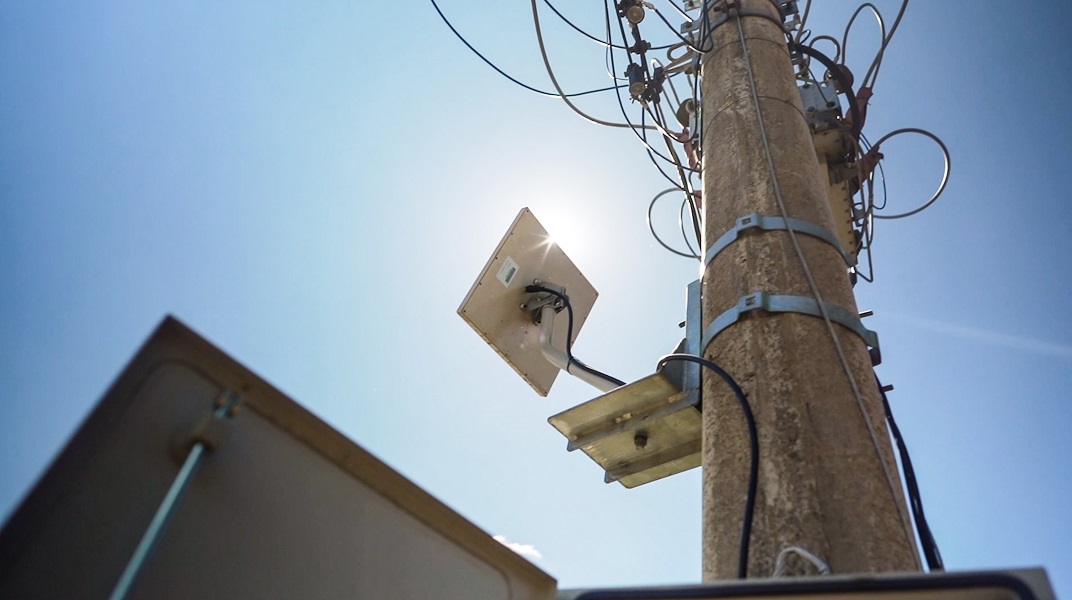Insight | COVID-19 and remote operations
COVID-19 and remote operations
null
Companies are turning to Industrial IoT solutions to keep running during lockdown, reports Inmarsat Enterprise VP Tara Maclachlan.
One of the biggest challenges faced by companies during the COVID-19 pandemic is how to continue operations while staff are in restricted in their movement due to lockdown measures.
This has led to a greater demand for both remote working and the remote monitoring, command and control of systems and assets. Organisations are starting to investigate how industrial Internet of Things (IIoT) applications can help make them more resilient in the short term, and to ensure they can stay operational should a crisis like this happen again.
Many organisations are faced by the dilemma of maintaining mission critical services while upholding the highest standards of health and safety and looking after their workforce. From mining and agriculture to the global supply chain, the challenges COVID-19 presents are exacerbated by the limitations of terrestrial communications networks and the ability to operate effectively in remote areas. Even if companies can allow their employees to work, restrictions on movement have made the process of getting skilled workers from one area to another – let alone across borders – very difficult, with different countries having different rules in regard to movement.
So instead of sending a worker out repeatedly to perform maintenance or analysis, decision makers are starting to look toward IoT to get around the issue of compiling the necessary data or to make the necessary adjustments to keep business running as usual.
Real-time critical decision-making
The right sensors can provide all the data needed to make critical decisions, in real-time, while drones are capable of performing simple maintenance tasks.
There is just one problem – connectivity.
In remote areas where many business critical operations occur, there isn’t much of it.
The ability to deploy any IoT solution is wholly dependent on the capacity to connect to the machine, asset or sensor and to effectively transmit the required dataset to the application, be that on-premise, or more likely, to the cloud provider of choice.
While this can be a relatively simple choice where terrestrial communication is available, it is much more challenging when operating in regions where there are no or limited terrestrial options. Indeed, when considering that globally the majority of agriculture, cross border/continental logistics and mining operations lie outside of the areas covered by existing terrestrial networks the only option is to look to space and satellites.
Global, available, secure communications
We are proud to be providing our customers from a broad range of industries access to a global, high availability and secure communications network enabling access to remote systems for the tracking and control of static and mobile assets, not only in-country but across continents. This is helping them operate efficiently, even while the COVID-19 situation raises numerous challenges.
With more and more companies looking at how they take optimise their operations with IoT and satellite connectivity, there are longer term implications. Once the transparency, automation and efficiency is baked into the way that businesses operate, and the organisation understands the benefits, the route forward can only be to implement more IoT systems.
While COVID-19 may be the catalyst for the acceleration of adoption for industrial IoT, the end result will leave successful companies able to operate more efficiently with or without a lockdown affecting their movements.
About the author
Tara MacLachlan is Vice President of Industrial Internet of Things, Inmarsat Enterprise. Tara joined the business from Eurotech Group, one of the leading players in the IIoT space.
She has devoted her career to being an advocate for the IoT, speaking at many major events across Europe and delivering solutions for brands including Royal Mail, DHL, Heidelberg Druckmaschinen, Whitbread and Walmart.


